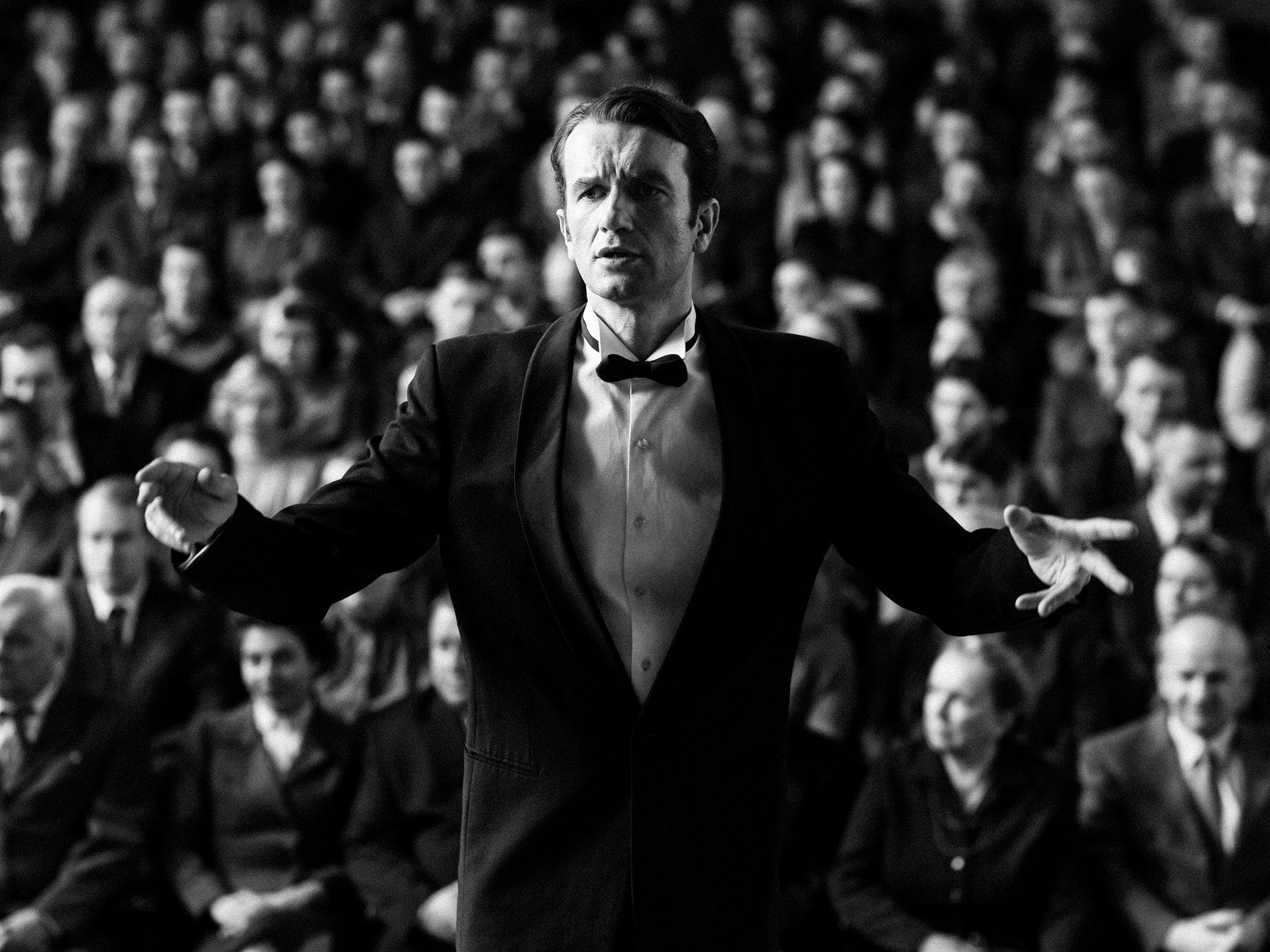
Pawel Pawlikowski’s new film Cold War opens this weekend in the US, but it already has a lot to live up to. With a win for Best Director at the Cannes Film Festival, it’s a serious contender for the Best Foreign Film Oscar. Thankfully, it lives up to the hype. Cold War is an unconventional yet deeply moving love story that feels like a modern classic.
It follows the decade and a half-long love story between Zula (Joanna Kulig) and Wiktor (Tomasz Kot). They first meet in 1949, in rural Poland. Wiktor is the musical director of a new nationally-sponsored dance and folk music company and Zula is a young girl trying to join the troupe. From their first meeting, we know they will end up in bed together and against the backdrop of the rise of the Eastern Bloc, Cold War tracks all the ways and reasons they pull apart and come back together.
While every love story lives and dies by its leads, that’s particularly true here, as Kulig and Kot have to bring their characters through 15 years of world and personal history. While Kot does yearning well, it’s Kulig who’s the standout. Looking like a combination of Jennifer Lawrence and Jessica Chastain and with acting skills to match both, Kulig makes it easy to understand why Wiktor would fall in love. Though the stellar make-up work helps sell Kulig as both the teenaged version of Zula, the rest is attitude. When she first enters the music school, she’s cunning, but she also projects a malleability and untapped skill that makes her seem young. It’s difficult to express exactly how she conveys that because so much of Kulig’s performance is nonverbal. When Wiktor shows up to one of Zula’s later performances unannounced, we know how shocked she is by the way her smile drops and the way she manages to keep her eyes on him even as she spins in dance.
However, while the actors are a large part of why the film works, the music they make is just as telling and integral to every stage of their story. Cold War covers a significant chunk of time and space and the music helps set us in each milieu. When the pair meet, its just after World War II and they’re brought together by Polish folk music and dancing. They, like the music, are raw and uncorrupted, pure expressions of a specifically Polish identity. That music becomes more regimented and polished the more Moscow becomes involved. Later, in Paris in the mid-‘50s, they make mournful jazz together out of those same folk songs, an expression of everything that’s wrong between them. It’s brilliant work by composer Marcin Masecki and only one of the film’s technical aspects that makes it so strong.
The cinematography–shot on film by Lukasz Zal–is simply stunning. The 1.37:1 aspect ratio is small, but it fits the period and Zal uses it to great effect. Sometimes the perspective is sweeping—like the shot of the troupe performing in East Berlin in 1952, the dancers in the foreground with a massive crowd in the background and an enormous likeness of Stalin and Lenin in the middle. In others, the scope is small—like the breathtaking shot of Zula and Wiktor’s faces mere inches apart as they lay in wind-tousled brush. Every moment is so beautiful, you wish the camera would linger a little longer. Unfortunately, though Pawlikowski’s scope is sweeping, what we see of this epic love story is relatively limited.
If you were to cut two hours of David Lean’s Doctor Zhivago and make it black and white, you’d have something close to Cold War. On some level, it’s storytelling at its most beautifully efficient. We’re aware of the love story tropes and Kulig and Kot are good enough to tell us what their characters feel without ever saying a word. We suspect from the way that Zula and Wiktor eye each other during her audition that they’ll soon start an affair, but Wiktor’s partner Irena (Agata Kulesza) makes sure we know when she acknowledges that he’s already chosen her in some way. On some level, that somewhat expositional style gives all the characters a bracing frankness that allows the story to zoom past all the build up—barely 20 minutes have passed before the pair have sex. While the actors may sell that rapid progression, Wiktor and Zula’s falling in love is given so little attention in the early scenes that it might be hard for some viewers to buy everything that comes after.
Cold War is not a traditional love story. The characters make the wrong decisions and deliberately hurt each other and their ending is so bleak that you wonder what childhood trauma Pawlikowski is trying to work out when the dedication to his parents pops up before the credits. Like Zula herself, its mercurial nature is part of what draws us in. We know everything is against Zula and Wiktor (age, world politics, their own self-destructive natures) and yet we root for them anyway. Love makes fools of us all.
Rating: 7/10


Comments are closed.